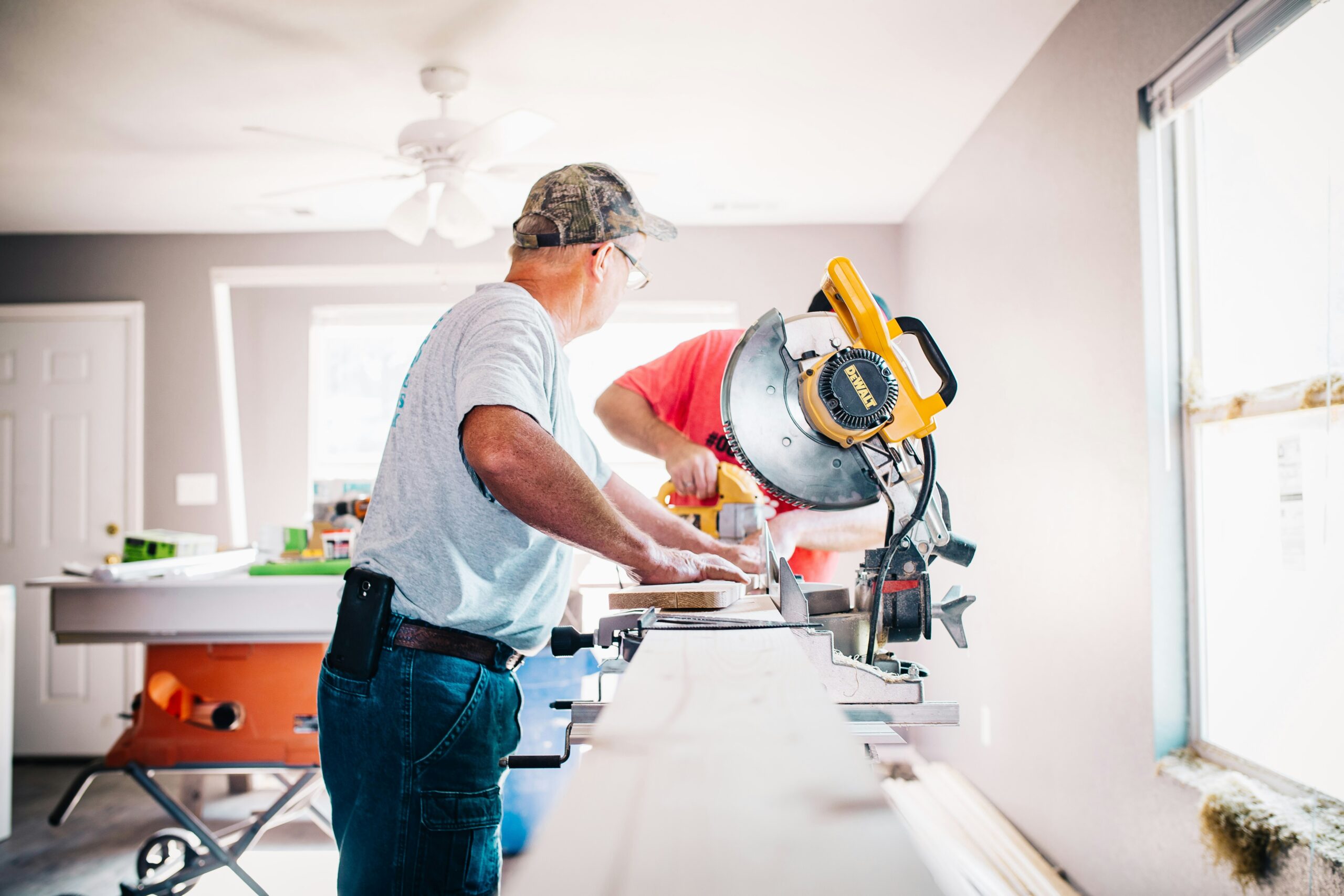Key Lease Agreement Considerations
The tenant’s rights are the landlord’s duties, and the tenant’s duties are the landlord’s rights.
The lease agreement is the key document to review, as it typically comprehensively lists the landlord’s responsibilities.
The property must meet the decency requirements set forth by French law, which include:
-
- Tenant well-being and security;
-
- Pests and parasites free;
-
- Minimum area of 9 square meters;
-
- Ceiling height of 2.20 metres (minimum);
-
- Minimum energy efficiency;
-
-
The equipment specified in the lease ought to be operational.
-
It is feasible to reach an agreement with the landlord regarding who will handle the necessary repairs if the property is not in excellent shape when the lease is signed. Nonetheless, landlords should provide a basic level of decency for their tenants.
The lease should include:
-
- The type of repairs;
-
- How the rent will be reduced to cover the repairs;
-
- How long will the repairs take to complete;
-
- The terms for compensating repairs if the tenant vacates the property before the lease expires.
Landlords’ Responsibilities for Maintenance and Repairs
Landlords renting apartments in France are responsible for various maintenance tasks related to rental homes. Essentially, the tenant covers the cost of routine maintenance. For example, s/he pays to fix a leaky faucet but not to replace it. Or they are paying only for the use of the elevator but not its replacement. The French Civil Code and other relevant laws specify these obligations.
A few of the landlords’ principal maintenance duties consist of:
1. Structural Maintenance
Landlords are usually in charge of keeping the property’s walls, roof, and foundation structurally sound. Ensuring the property is secure and livable for tenants is part of this.
2. Repairs
The landlord is responsible for maintaining the property’s condition by making any necessary repairs. This entails fixing any flaws that compromise the safety or habitability of the property. Both landlords and tenants are in charge of some repairs, even though landlords ultimately ensure the rental property is habitable.
For example, the landlord must perform any maintenance needed to keep the rental unit habitable. The landlord also bears legal responsibility for fixing any flaws. The landlord will be liable for any harm arising from flaws they neglected to fix or fixed inadequately. However, the landlord is not responsible for damages caused by the tenant, their family, guests, or pets.
3. Plumbing and Electrical Systems
The landlord is responsible for ensuring the rental property’s electrical and plumbing systems are in excellent operating condition. This includes repairing any problems with the wiring, outlets, pipes, or faucets.
4. Heating
Landlords are responsible for ensuring the rental property’s heating system operates well, especially in the winter. They are also responsible for maintaining and fixing the heating system as needed.
5. Safety
Landlords are responsible for ensuring that rental properties adhere to safety regulations. This includes installing smoke and carbon monoxide detectors when required by law.
6. Common Areas
Landlords are usually in charge of keeping communal spaces like stairways and corridors, a component of a building where the rental property is located, safe and tidy.
7. Appliances
Landlords are often in charge of keeping appliances like stoves, refrigerators, and washing machines in excellent operating order if the rental property includes them.
8. Compliance with Regulations
Landlords must follow all relevant laws and regulations regarding rental properties, such as tenant protection legislation, building codes, and health and safety requirements.
9. Due Diligence and Due Care
Before a tenant moves in, a landlord must inspect and address any potential risks or flaws in the rented property. The landlord may be liable for the tenant’s diseases or injuries if flaws or hazards are discovered on the property.
In other words, the landlord needs to exercise “due diligence.” It is his or her duty to investigate and find any problematic situations. Additionally, a landlord needs to exercise “due care.” He or she must act on any flaws, problems, or other discoveries made during the due diligence. In addition to breaking safety regulations, the landlord may also be held accountable for any risks on the rented property. However, landlords are not responsible for any dangers that the landlord has no control over preventing.
For example, the tenant is responsible for more minor repairs like replacing washers or other small parts that are part of routine maintenance, while the landlord is in charge of more extensive repairs like replacing entire appliances.
Repairs that are not considered general maintenance but that can be considered to be due to vétusté of the equipment – meaning it is old and worn-out – are also generally the landlord’s responsibility (however, this may not apply if an item is found to have broken because of improper use by the tenant).
As this area can be complex, one way of checking on such matters is to ask your local ADIL, part of a network of bodies advising free of charge on accommodation.
Examples of Repairs That Are the Landlord’s Responsibility
Urgent repairs
-
- Boiler failure (the annual maintenance is the tenant’s responsibility);
-
- Broken shutters repair;
-
- Faulty pipework repair;
-
- Retaining a beam that threatens to break;
-
- Building façade restoration;
-
- Stairwell repair;
-
- Common areas improvements or repairs;
-
-
Necessary repairs to keep the property in good condition and of decency.
-
In a force majeure event (such as a storm) or natural wear and tear, the landlord will be responsible for some repairs that are typically the tenant’s duty.
Minimum Condition Standards
According to the legislation, a property must be in good condition when rented out and for the duration of a tenant’s stay there.
What the law demands explicitly:
-
- There must be no leaks, and the construction must be watertight;
-
- Balconies, steps, and floors need to be sturdy and secure;
-
- Gas and electricity must be safe to use;
-
- Every room should have enough lighting;
-
- The ceilings should be sturdy enough to support nothing falling from them;
-
- There must be adequate ventilation in the area;
-
- A safe way to maintain the place’s warmth;
-
- There must be adequate pressure and a sufficient amount of cold water entering the system;
-
- Wastewater has to be properly disposed of;
-
- There is no risk of lead poisoning or asbestos inhalation. Cooking space and a sink with hot and cold water are necessities in the kitchen;
-
- There must be a private bathroom with hot and cold running water and a toilet away from the food preparation area. The bathing area must appropriately drain away used water.
Minimum Space Standards
A single-person home needs a minimum of 9 m² in surface area, 2.20 m² in ceiling height, or 20 m² in total, with a minimum height of 1.80 m.
The surface area rises to 16 m² for every two people, and for every extra person, it grows to 9 m².
Large-scale Construction Projects
The tenant must allow the landlord access to carry out any necessary repairs or works to bring the property into a proper state.
Where the norms are already met, and the landlord only wants to undertake improvement work, there is no such right.
The rent may be lowered for the tenant if the significant repairs take over forty days to complete. If the repairs are so substantial that they make the property unfit for occupation, the landlord must find suitable alternative (temporary or permanent) housing for the tenant.
France has very tight rules on property rentals. And those rules are also quite complicated, so you need to know what they are and how they apply to you.
Although the tenant must allow the landlord access to fulfill their repair obligations, this does not extend to access for improvement work. In fact, the landlord can only access the property with the tenant’s permission, except when necessary to make repairs and collect rent.
Tenant Protections During Extensive Repairs and Renovations
For the whole lease term, the landlord is responsible for maintaining and making repairs to the home s/he rents, except for minor rental maintenance, which is not attributable to a fault of the tenant. The landlord is, therefore, accountable for the following:
Furthermore, the landlord must give the tenant notice before any work starts. S/he must deliver it to the tenant or send a notification by registered mail with an acknowledgment of receipt. Also, the landlord must clearly state the nature of the work (improvement, urgency, expected energy performance, etc.) and the completion method (start date, length, access requirements, etc.) in this notification.
If the work is urgent (such as replacing the water heater in the winter), the tenant must grant access to the apartment to plan and carry it out. Nevertheless, the tenant is not obligated to allow access on Saturdays, Sundays, and public holidays.
However, if these repairs or renovations take more than 21 days to complete, the landlord must provide a tenant with a rent decrease commensurate with the length of the work.
Resolving Unaddressed Repairs
Suppose the landlord doesn’t fulfill their responsibilities. The tenant should first inform them. If the landlord doesn’t resolve the issue within two months or doesn’t respond, the tenant can seek help from the departmental conciliation commission or the court registry.
Under certain circumstances, tenants may file a protection lawsuit with the court that oversees the residence. This is when the work is abusive, does not follow the guidelines in the notice of works, poses a risk to public safety, or makes habitation unfeasible. If the work makes the residence uninhabitable, the tenant may then request from the judge that the work be prohibited, that it be interrupted, or that the lease be terminated.
In case the rental property is in poor condition, when the tenant arrives, s/he and the landlord can decide that the renter will take care of the necessary repairs.
If necessary, this option must be covered by an explicit clause detailing the type of work the tenant performs, how the amount is charged toward the rent, how long the renovation will last, and, if the tenant vacates early, the terms of his compensation.
Require the owner to make the major repairs that are at his expense (Document Template)
What To Do If Your Home Is in Poor Condition?
Your ADIL can inform you about your rights and what to do if your home is worn, unsafe, or in bad condition. Depending on how the situation is evaluated, many options exist for occupant protection, including housing unsuitable for occupancy, unhealthy, dangerous, or does not meet Department of Health Regulations (RSD) standards.
-
- Check out Guide logement decent.
Rental Repairs at The Expense of The Tenant (Service Charges)
Adding “service charges” to the rent allows landlords to recuperate part of the costs associated with standard services and maintenance (e.g., gardening of shared spaces, elevator maintenance).
Tenant expenses that the landlord first covers are known as rental charges, sometimes known as recoverable charges. The tenant reimburses the landlord for these costs.
Depending on the type of dwelling lease (mobility or non-mobility), tenants can pay charges by package or by provisions for charges with annual adjustments.
Valuable resources for service charges:
Legal Framework
This decree lists the charges that landlords can recover from tenants, including specifics on what costs are considered recoverable.
2. Article 606 of the French Civil Code
This article outlines the landlord’s obligations for significant repairs and structural work, which cannot be charged to tenants.
3. Lease Agreement Requirements
Landlords must include a comprehensive list of recoverable charges and maintenance responsibilities in the lease agreement.
Top Tips
1. Being thorough at turnovers when the unit is unoccupied significantly lessens anxiety and worry. For instance, replace any worn-out components, wear spots, or possible issues (before they break). This is but one example of preventive care. When you don’t worry about when item X or Y will break, you can sleep better.
2. You can hire a skilled and dependable property manager. A property manager can handle the full spectrum of property administration, including tenant selection, screening, rent collection, property maintenance, and tax accounting.
3. Ask for mandatory tenant insurance. Without insurance, a renter won’t be covered for any damages s/he causes to the property or personal incidents. This can range from breaking a coffee table to accidentally burning the house down.
Please note: This article does not constitute legal advice – the information on this page has been prepared solely for your information. As we are not a law firm and act as a platform, we can and may share our estimations, but we cannot give you legal advice for your individual further proceedings.









